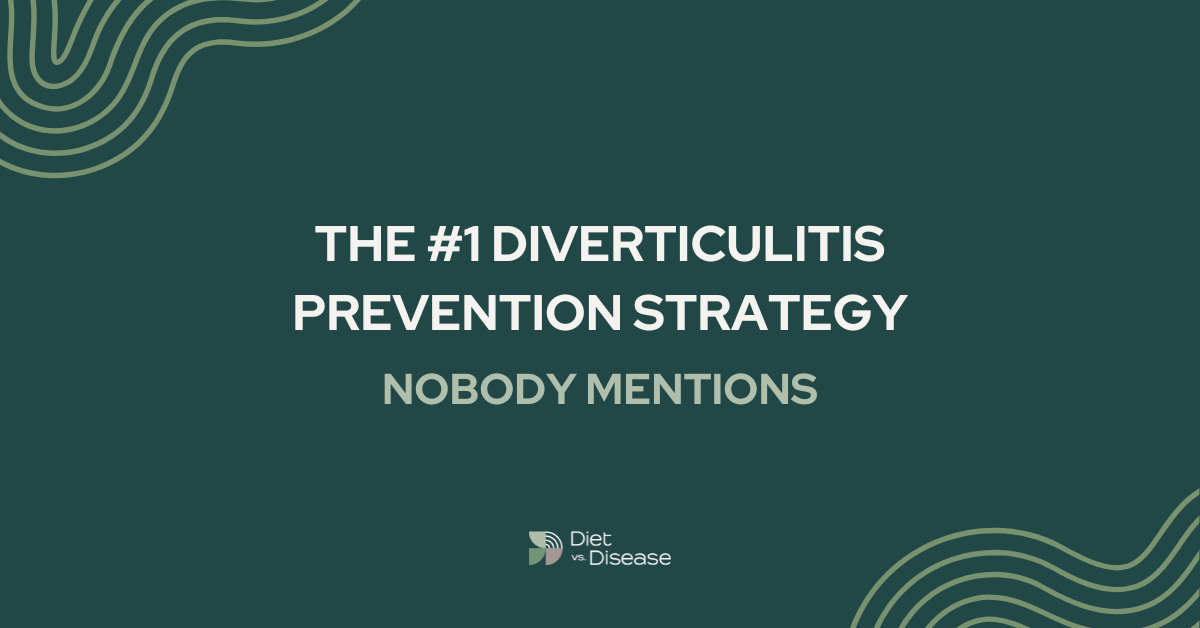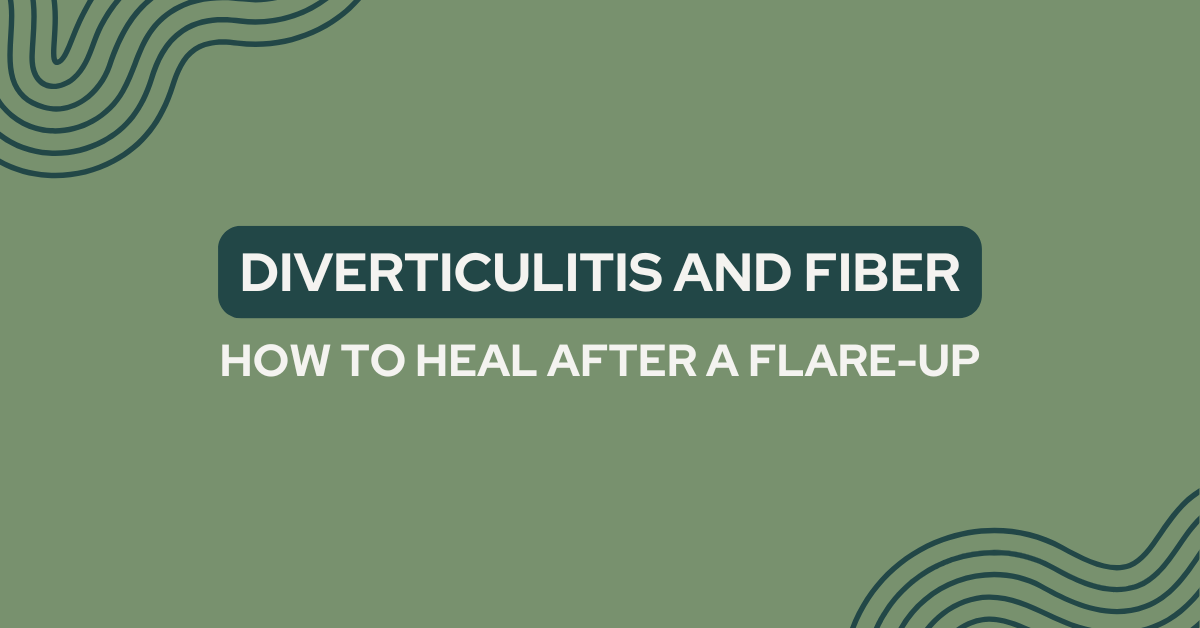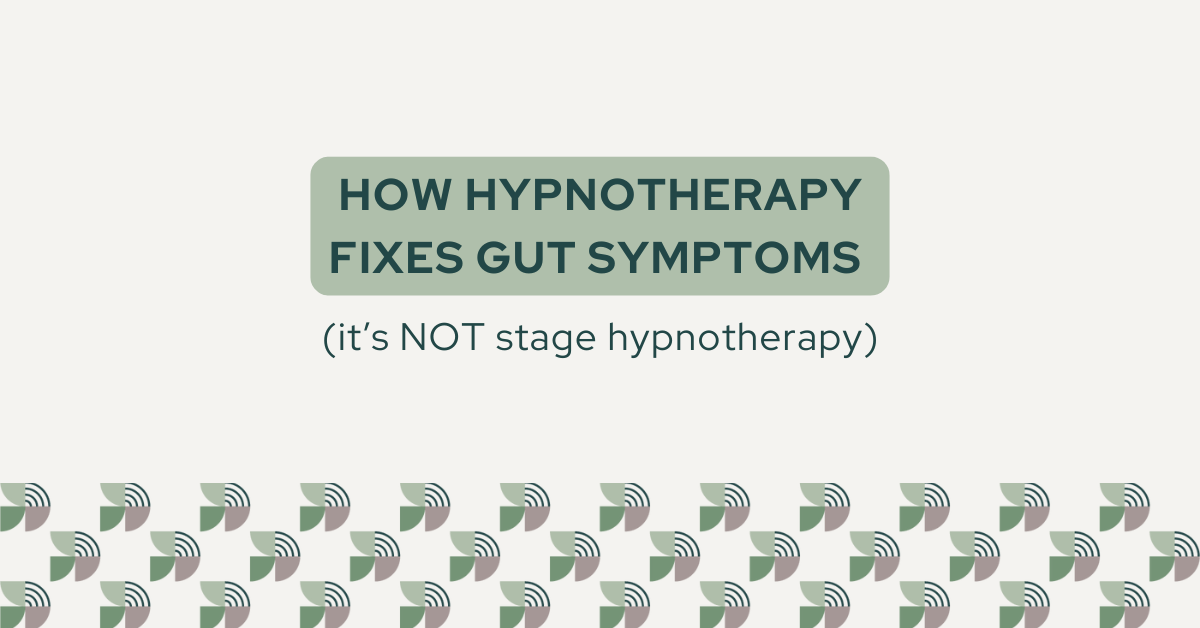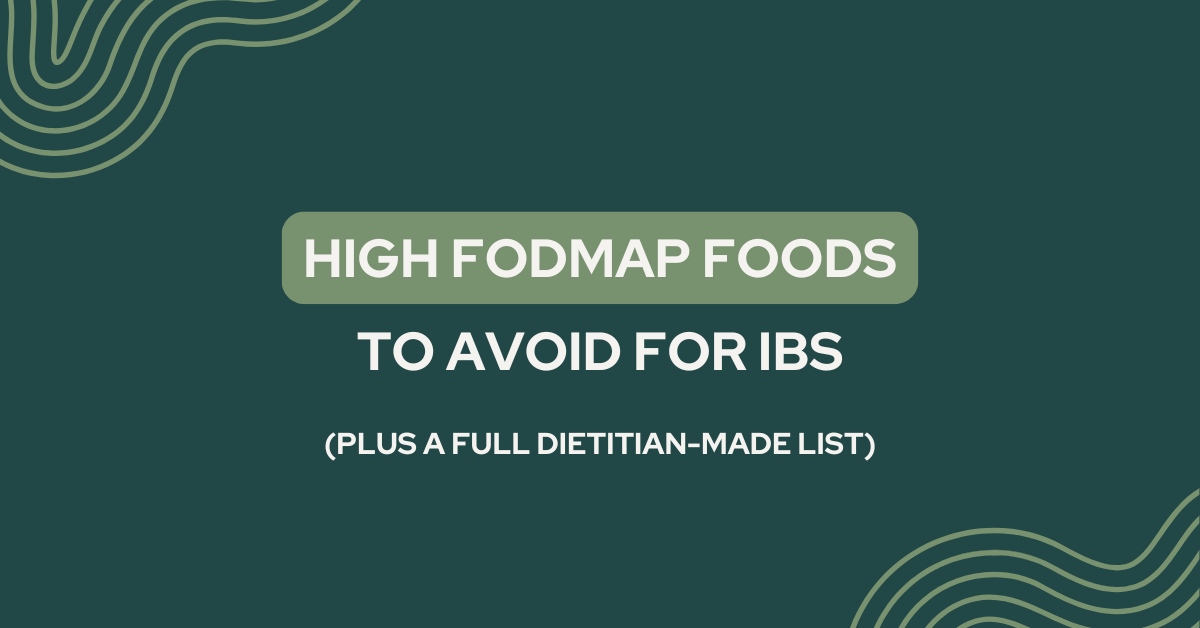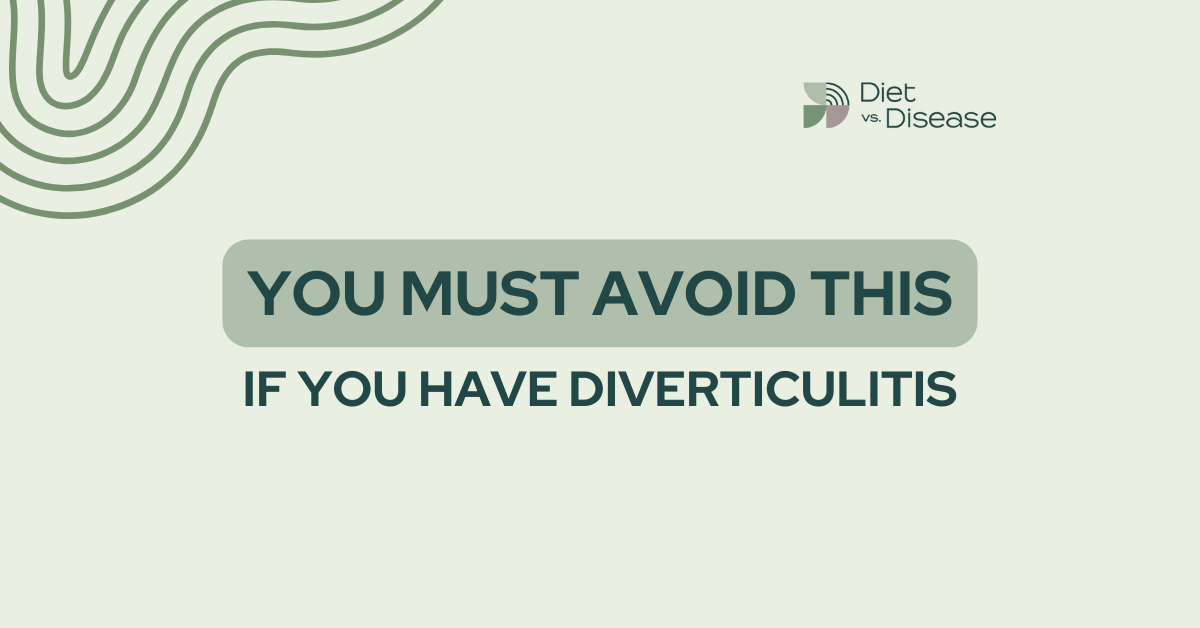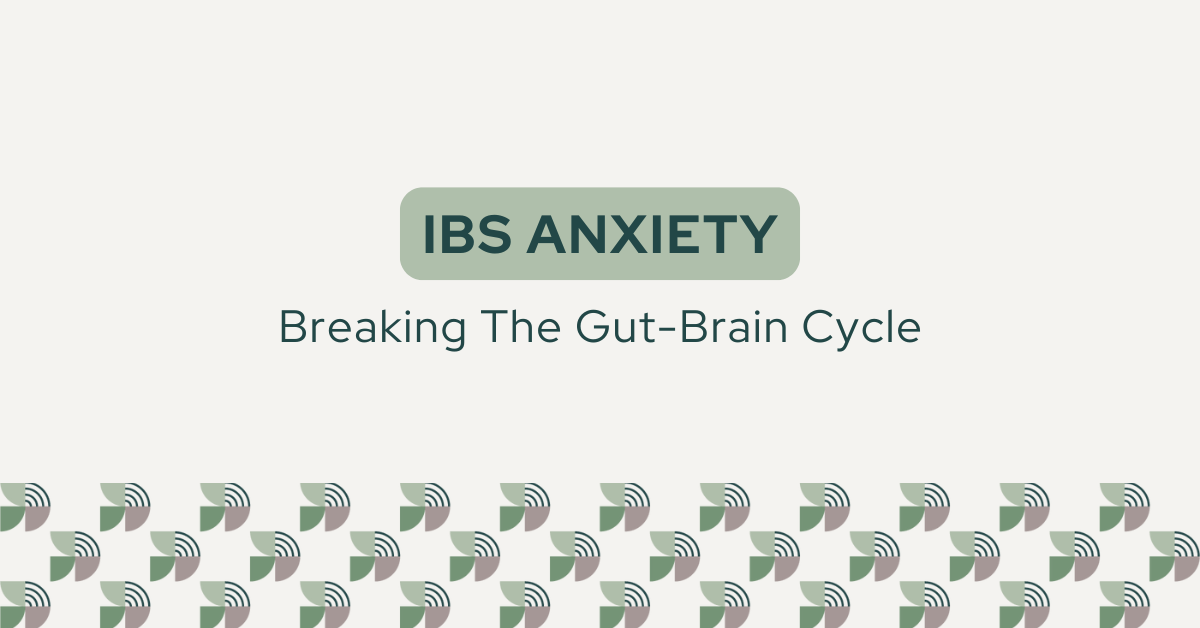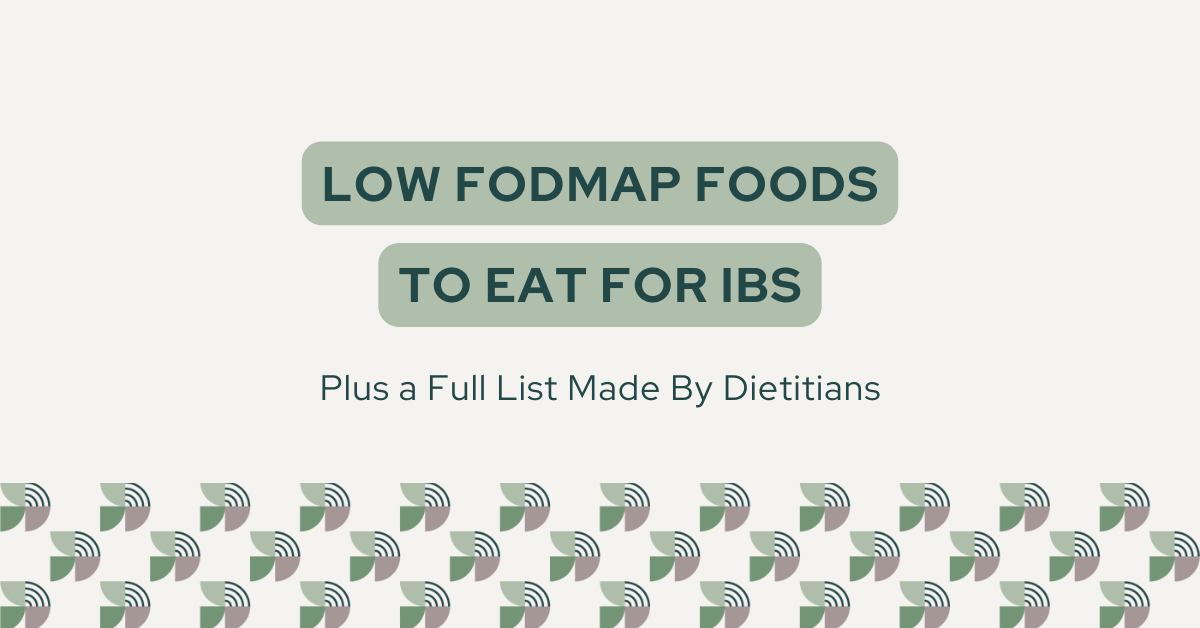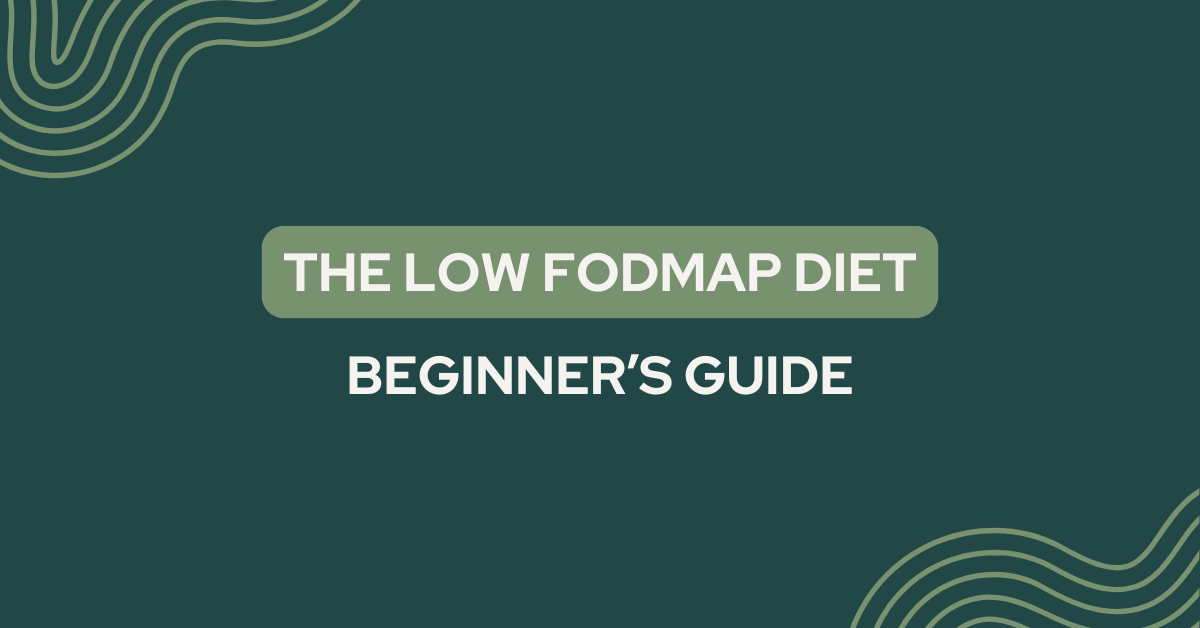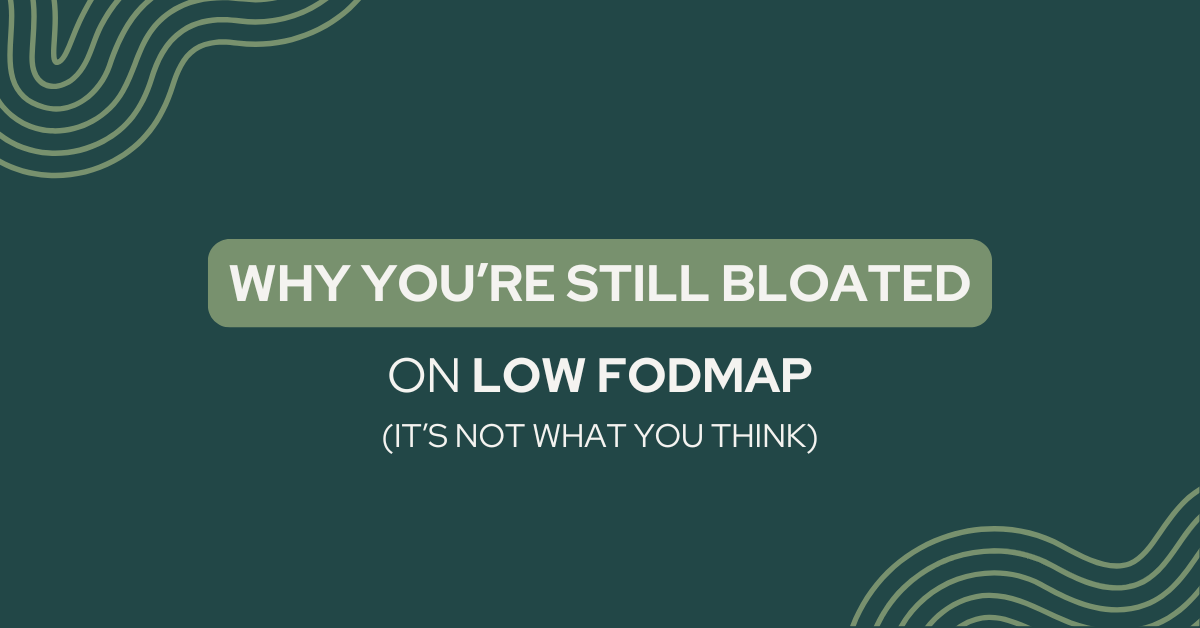What is a Low FODMAP Diet?
Put simply, FODMAPs refers to certain sugars known to trigger digestive problems.
The acronym stands for:
- Fermentable – meaning they are broken down (fermented) by bacteria in the large bowel
- Oligosaccharides – “oligo” means “few” and “saccharide” means sugar. These molecules are made up of individual sugars joined together in a chain
- Disaccharides – “di” means two. This is a double sugar molecule
- Monosaccharides – “mono” means single. This is a single sugar molecule
- And Polyols – these are sugar alcohols (however, they don’t lead to intoxication!)
A low FODMAP diet, or FODMAP elimination diet, refers to a temporary eating pattern that has a very low amount of these sugar compounds. The aim of this diet is to eliminate digestive symptoms by eliminating all FODMAPs, then reintroducing them gradually to see what’s triggering the symptoms.
This diet can be beneficial for managing symptoms for people who have gastrointestinal disorders such as:
- Irritable bowel syndrome (IBS)
- Functional Gastrointestinal Disorder (FGID)
- Small intestinal bacterial overgrowth (SIBO)
- Certain auto-immune conditions
- Inflammatory bowel disease (IBD)
- Other health issues triggered by certain foods.
Low FODMAP diet is a first-line treatment
Research in this area still has a way to go, but scientific consensus is that a low FODMAP diet should be the first dietary approach for treatment of recurrent gastrointestinal issues.
Most of the research has been on patients with IBS, which is a chronic gastrointestinal disorder characterized by abdominal pain and altered bowel habits. Around two thirds of IBS patients report their symptoms are related to food.
In one landmark study, almost 9 out of every 10 people on the FODMAP diet had huge improvements in bloating, stomach pain, flatulence and their overall symptoms. Another high quality study found IBS symptoms were reduced by 50% overall on the low FODMAP diet, with the greatest improvements observed one week after implementing the diet (1, 2).
Would you like more information on how to start a low FODMAP diet?
Tap the blue button below to download our “Eat This, Not That” list as well as additional resources for IBS and digestive issues (it’s free!)
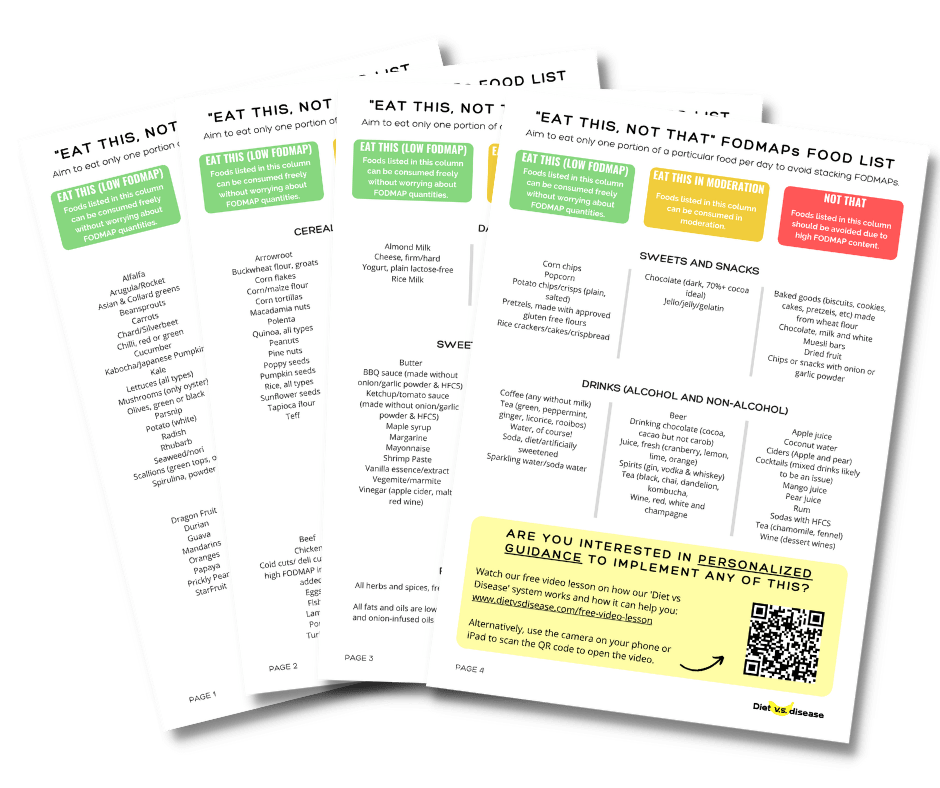
All articles about FODMAP Diet
The #1 Diverticulitis Prevention Strategy Nobody Mentions
If you’ve had diverticulitis, you know how painful it is. And you’ve probably been told the solution is simple: eat more fiber.
You’ve done everything “right.” You’ve added whole grains, vegetables, and all the recommended foods to your diet. You track your fiber intake carefully. You avoid trigger foods.
But there’s something that works alongside fiber that’s arguably even more important for preventing flares, and almost nobody talks about it. Not your doctor, not the medical advice online, barely anyone.
And the crazy thing is, it’s so simple that when I tell you what it is, you might think it can’t possibly make that much difference. But I’ve seen it transform outcomes for our diverticulitis clients over and over again.
In this article, I’m going to reveal the missing prevention factor that works alongside fiber — and what you can actually do to prevent flares for good.
Here is a video we made, otherwise there is a written version underneath.
[Discover More…]You Finally Booked That Dream Trip… But Your Gut Has You Terrified
You finally booked that bucket-list trip you’ve been talking about for years. Or maybe you’re in the planning phase, seriously considering it.
But instead of feeling excited…you’re terrified.
Not because of the flights or the planning — but because you know your gut. The urgency that comes out of nowhere. The bloating. The pain. The diarrhea has you running to the bathroom multiple times before you can even leave the house in the morning.
At home, you’ve learned to manage it. You know where every bathroom is. You can control what you eat. You can stay close to home on bad days.
But on a trip? You’re out of your routine. Out of your safe zone. And that’s scary.
If that sounds familiar, this article is going to explain the three reasons people get stuck in this cycle — and what you can actually do to fix it.
Here is a video we made, otherwise there is a written version underneath.
[Discover More…]Gut-Directed Hypnotherapy for IBS & Digestive Issues
If you’ve tried dietary changes, supplements, and medications for IBS or chronic digestive symptoms but still feel stuck, there may be an important piece of the puzzle that hasn’t been fully addressed.
For many people, persistent gut symptoms aren’t just driven by food or digestion alone. They’re closely linked to how the brain and gut communicate, especially in the presence of ongoing stress, anxiety, or symptom-related fear.
This is where gut-directed hypnotherapy comes in.
In this article, we’ll explain what gut-directed hypnotherapy is, how it works, who it’s best suited for, and how to use it effectively—plus how the guided session included below is designed to support your recovery.
[Discover More…]Diverticulitis and Fiber: How to Heal After a Flare-Up
You just survived a diverticulitis flare-up. Your doctor sent you home with antibiotics, told you to drink more water and eat more fiber…and that was pretty much it.
But you’re scared, confused, and you’ve got questions: When can I eat normal food again? What if it comes back? What if fiber makes things worse?
Here’s what your doctor probably didn’t tell you: What you do now will dramatically influence whether you stay symptom-free or end up back in the hospital.
In this article, I’m going to walk you through the exact diet protocol and approach we use with our diverticulitis clients—based on the most recent research blended with the lived experience of hundreds of our clients.
[Discover More…]How Hypnotherapy Fixes Gut Symptoms (it’s NOT stage hypnotherapy)
Can you really hypnotize your gut? It sounds quite abstract, right?
But gut-directed hypnotherapy, also known as gut-directed therapy, is scientifically shown to calm digestive symptoms, reduce pain, and especially to help people whose gut issues haven’t improved with diet changes or medication.
And no, this isn’t what you might be picturing. There’s no swinging pendulum, no “you’re getting very sleepy”. For those with religious concerns, there is no mystical or spiritual element to it, and I can promise you no one’s clucking like a chicken either!
Gut-directed hypnotherapy has nothing to do with mind control — it’s a clinical therapy that uses guided relaxation and visualization to retrain how your brain and gut communicate with each other. You’re fully awake and in control the entire time. Nobody is making you do anything. Think of it more like meditation with a specific goal: to reduce gut sensitivity and restore calm to your digestive system.
In this article, I’ll talk about how it actually works, how effective it really is, and how this might be the missing piece if you’ve tried low FODMAP, probiotics, medications, and you’re still suffering.
[Discover More…]High FODMAP Foods To Avoid For IBS (Plus a Full Dietitian-Made List)
If you’re reading this article, you likely fall into one of two categories.
First, maybe your doctor just handed you a basic FODMAP sheet and said something like “Look up how to do low FODMAP,” and now you’re staring at this confusing list thinking “This is overwhelming – what the heck can I actually eat and what should I completely avoid?”
Or second, maybe you’ve already been told to follow a low FODMAP diet, but you’re still getting symptoms, or it works, and then it doesn’t, and you’re thinking, “What am I doing wrong?”
Either way, you’re in the right place because in this article, I’m going to keep it nice and simple and go through the high FODMAP foods in each food group — showing you the absolute worst offenders. These are foods that are so high in FODMAPs that even small amounts can trigger symptoms. And these are foods that trip a lot of people up because they don’t necessarily realize they’re high in FODMAPs.
This article is specifically about the high FODMAP foods you need to completely avoid during the elimination phase of the diet. Plus, we’ll also clear up some of the confusing foods people always ask about.
[Discover More…]You MUST Avoid This If You Have Diverticulitis
So you’ve had a diverticulitis flare-up.
You’re finally feeling better. But now you’ve got some pain in your joints (maybe some inflammation somewhere in the body) and you’re thinking about taking an anti-inflammatory.
Here’s what a lot of people don’t seem to realize or appreciate (maybe your doctor never told you): Taking NSAIDs—which stands for Nonsteroidal Anti-Inflammatory Drugs—like ibuprofen or Advil, naproxen, or even aspirin increases your risk of another flare-up catastrophically.
We’re talking about a nearly 7 times higher risk of bleeding and a 3 times higher risk of perforation.
It’s like playing Russian roulette with your gut. Every time you take it, you’re dramatically increasing the odds of another flare-up, another ER visit, another round of antibiotics that decimates your microbiome and the resilience of your gut even further.
In this article, I’m going to walk you through exactly what the research shows about NSAIDs and diverticulitis, why they’re dangerous, and what pain relievers you should consider instead.
Of course don’t change anything you do without speaking with your doctor first, but it pays to be well-informed and educated on this.
[Discover More…]IBS Anxiety: Breaking the Gut-Brain Cycle
If you’ve been dealing with IBS for a while, you know this feeling all too well. You’re about to leave the house… and suddenly your gut starts churning. You’re at a restaurant, looking at the menu… and the panic sets in. “What if this triggers a flare? What if I can’t find a bathroom? What if I have an accident?”
Here’s the thing: this isn’t just in your head. Your anxiety and your gut symptoms are actually connected in a very real, very physical way through something called the gut-brain axis.
When I first started our gut health program back in 2019, I thought it was all about the nutrition. The Low FODMAP diet, identifying food triggers, reducing inflammation — that’s what I focused on. But then something surprising happened. We added a mindset coach to our team, and we started asking clients at the end of the program: “What was the most valuable part for you?” I was expecting them to say the nutrition, the meal plans, and working with the dietitians. However, more than half of them said the mindset work was effective. The anxiety management. Regulating the nervous system.
That’s when I realized: you can’t fix IBS with diet alone.
[Discover More…]How to heal SIBO: Hydrogen, Methane & Hydrogen Sulphide
Have you been told you have IBS… but your symptoms never seem to go away? Maybe you’ve tried the low FODMAP diet, maybe probiotics, maybe medications — but nothing sticks.
The real reason could be something called SIBO: Small Intestinal Bacterial Overgrowth. Basically, it means you’ve got bacteria growing in the wrong place—the small intestine—in quantities they shouldn’t be in, which can be the root cause of many gut symptoms.
And this might not be as rare as first thought. Research shows that about one in three people with gut complaints actually test positive for SIBO. Depending on the study, up to 78% of IBS patients may have SIBO as the root cause of their symptoms (1).
So if you’ve been dismissed with “it’s just IBS” or told gut issues are just part of getting older, in many cases, it’s actually SIBO. But here’s what most doctors miss: SIBO is not just one thing. Depending on the gas being produced — hydrogen, methane, or hydrogen sulfide — the symptoms and treatments can look very different.
[Discover More…]Low FODMAP Foods To Eat For IBS (Plus a Full List Made By Dietitians)
If you’ve been told to follow a low FODMAP diet, you’re probably staring at conflicting food lists online, wondering what the heck you can actually eat without triggering your symptoms.
Here’s the reality: over 15,000 people we’ve worked with were given a basic FODMAP handout by their doctor and told “good luck” — with no real guidance on portions or food preparation. If that’s you, you’re definitely not alone, and I’m glad you found this article.
In this comprehensive article, I’ll walk you through each food group and what’s safe to eat — with clear portion sizes so you know how much is actually low FODMAP and when it tips over. We’ll also clear up some of the confusing foods people always ask about, like tofu versus soy milk, sourdough bread, dairy options, and fruit portions.
[Discover More…]The Low FODMAP Diet Beginner’s Guide
Are you dealing with persistent digestive issues and wondering how to do a low FODMAP diet properly?
This is one of the most common questions we get at Diet vs. Disease, and if you’re tired of spending all your free time trying to figure out digestive relief on your own, this article is exactly what you need.
We’re going to cover everything you need to start a low FODMAP diet successfully, so you can get through it as smoothly as possible, find relief from symptoms, and one day eat with freedom like a normal person again.
[Discover More…]Why You’re STILL Bloated on Low FODMAP (It’s Not What You Think)
Are you still getting bloated on a low FODMAP diet even though you’re following it perfectly? You’re not crazy, and you’re definitely not alone.
Many people have this exact same frustrating experience. They’ve eliminated all the high FODMAP foods, they’re using the Monash app religiously, but that uncomfortable bloating just won’t go away.
Here’s the thing — clinical research shows the low FODMAP diet actually works for up to 86% of people with IBS (1). So statistically, if it’s not working for you, it’s likely user error rather than FODMAPs not being an issue for you.
But it’s not your fault, because there are actually two crucial hidden traps that you probably were never taught, which we’ll dive into in this article.
[Discover More…]


